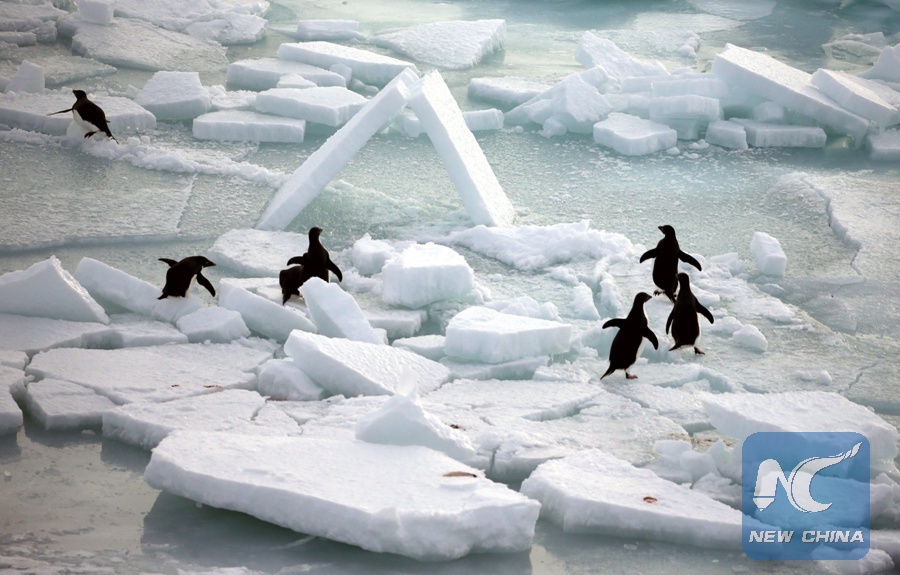
Photo taken on Dec. 5, 2017 shows penguins in the ocean surrounding Antarctica. (Xinhua/Bai Guolong)
WASHINGTON, June 13 (Xinhua) -- Scientists found the loss of ice in Antarctica had caused global sea levels to rise by 7.6 millimeters since 1992, with 40 percent of the increase happening in just the past five years.
The results, reported on Wednesday in the journal Nature, are based on combined data from 24 satellite surveys and updated 2012 findings.
They show that prior to 2012, Antarctica lost ice at a steady rate of 76 billion tons annually, making a 0.2 mm-per-year contribution to sea level rise.
But since then, there has been a sharp, threefold increase, according to the study.
Between 2012 and 2017, the continent lost 219 billion tons of ice annually, a 0.6 mm-per-year sea level contribution.
Antarctica stores enough frozen water to raise global sea levels by 58 meters, and knowing how much ice it's losing is key to understanding the effects of climate change today and in the future.
The threefold jump in ice loss from the continent as a whole is a combination of increased melting in West Antarctica and the Antarctic Peninsula, with a small portion from the ice sheet in East Antarctica.
West Antarctica experienced the largest change, with ice losses growing from 53 billion tons per year in the 1990s to 159 billion tons annually since 2012.
Most of this came from the huge Pine Island and Thwaites glaciers, which are retreating rapidly due to melting by warm ocean waters.
At the northern tip of the continent, ice shelf collapse at the Antarctic Peninsula has driven a 25 billion-ton increase in ice loss since the early 2000s. The East Antarctica ice sheet is thought to have remained relatively stable over the past 25 years.
"We are confident in our understanding of ice mass change in Antarctica and its impact on sea levels. We view these results as another ringing alarm for action to slow the warming of our planet." said the paper's co-author Eric Rignot, chair of Earth system science at the University of California, Irvine.

